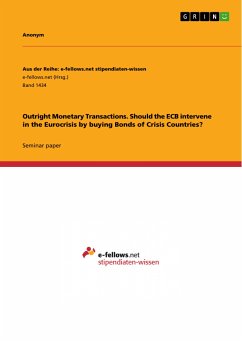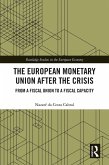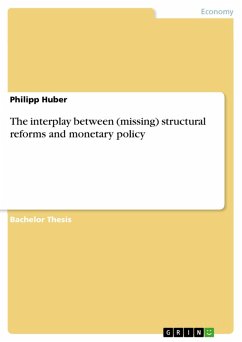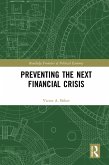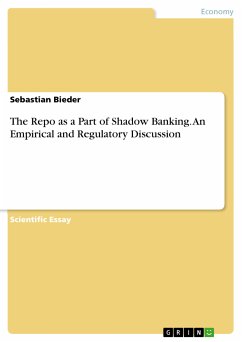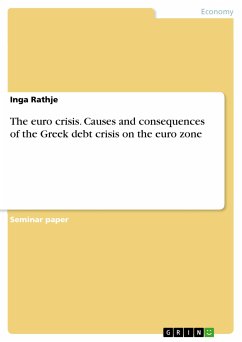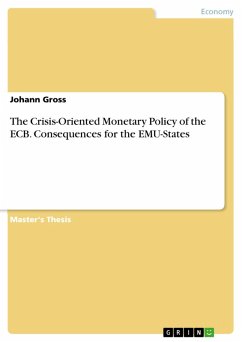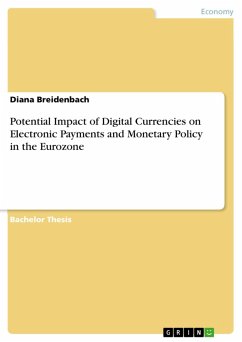Seminar paper from the year 2015 in the subject Economics - Macro-economics, general, grade: 1,5, HHL Leipzig Graduate School of Management (Lehrstuhl für Makroökonomie), course: Macroeconomics, language: English, abstract: "Within our mandate, the ECB is ready to do whatever it takes to preserve the euro. And believe me, it will be enough." - Mario Draghi, July 2012 In July 2012, at the Global Investment Conference in London, Mario Draghi emphasized the strength and irreversibility of the Euro as single currency of the European Union. At that time the Euro crisis had been facing its greatest challenge, with Portugal, Ireland, Greece and Spain¿s heavy indebted balances. Esodic to this crisis have been several occurrences. In 2011, the European Stability Mechanism (ESM) with 500bn euros has been set up, after the four heavily indebted coun-tries did not manage to escape their indebtedness themselves. Accordingly, the yields on their government bonds have risen sharply, as investors demanded huge re-turns to borrow. As a consequence, the countries¿ borrowing costs grew proportionately. Together with the stagnation of the economic growth at 0.2%, the downgrading of Italy, France and the European Financial Stability Fund (EFSF) by Standard&Poor¿s followed. In his speech, Mario Draghi announced concrete future actions of the ECB to come, which resulted in Outright Monetary Transactions (OMT). Within OMT, the European Central Bank (ECB) buys government bonds of struggling EU countries on the secondary markets. Therewith, borrowing costs are reduced, easing the burden of decimating budget deficits. Even though the markets reacted positively, the program is not homogeneously evaluated positively. In order to gain an overview of issues related to the OMT program, his paper analyzes both the advantages and the risks of an ECB intervention into the European debt crisis by pur-chasing government bonds of crisis countries. Supportively, suitable economic models are applied. The paper closes with a critical reflection.
Dieser Download kann aus rechtlichen Gründen nur mit Rechnungsadresse in A, B, BG, CY, CZ, D, DK, EW, E, FIN, F, GR, HR, H, IRL, I, LT, L, LR, M, NL, PL, P, R, S, SLO, SK ausgeliefert werden.

